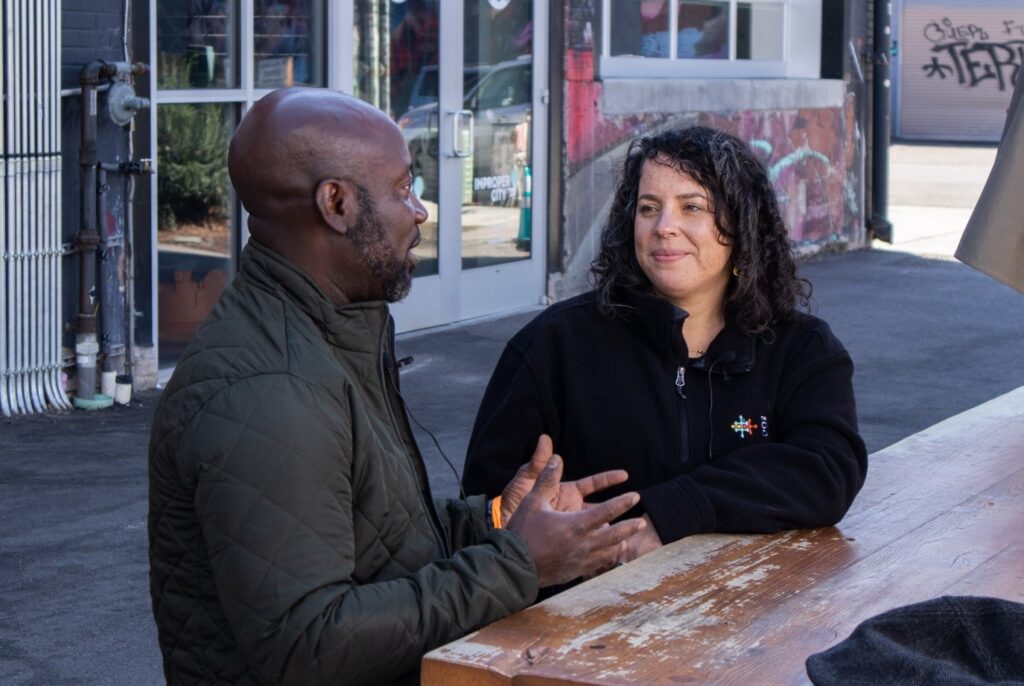Four years ago, I was on a date watching RBG, a documentary about the late Supreme Court Justice Ruth Bader Ginsberg. I didn’t follow Justice Ginsberg’s career much, but I knew enough to know she was an icon and that I directly benefitted from what she stood for while on the Supreme Court. I was struck by learning how Justice Ginsberg used her role strategically; she used her position as a counterweight to what her colleagues stood for, so a balanced perspective was represented. The other piece that stuck out to me was that while she often disagreed with her colleague, Justice Alito, they were opera buddies. How are relationships like this possible? How can someone put aside differences and share joy in points of connection and shared interests?
I get to travel to Pueblo fairly regularly and look for the people taking action on what it means to make Pueblo a more healthy, equitable place to live. While making a tie-dye shirt with one of those people, I heard stories about his advocacy work, what he’s inspired by, and what sometimes seems to get in the way of advancing what he’s passionate about – serving people experiencing homelessness. We talked about the role of local politics and how he goes way back with one local politician who often speaks out against what he’s working so hard to achieve. He continues to see this person as a friend whom he cares deeply for. I shared how that would be hard for me – to remain friends with someone actively working against something I believe in. To which he simply responded, “Get over yourself. There’s work to do.”
This truth moved through every cell in my body the same way my carefully curated tie-dye palette spread across my gifted crisp, white t-shirt. I was speechless. And he was right.
To help ground myself following this interaction, I looked up what it means when someone says to “get over yourself.” A quick Google search defined it as “aligning with something larger than yourself.”
Since this interaction, I’ve been thinking about the people in my orbit I tend to disagree with, and I wonder how much I actually know about them. Have I taken the time to really understand where they’re coming from, what motivates them, and what keeps them up at night? Do I know their story? Have I honored it even when I don’t understand it? As my colleague, Morgan, recently expressed at our Canopy Summit, have I looked for the universe in the people most seemingly unlike me? And do I know enough about them that I can both disagree with them and work alongside them in service of the greater good?
In the three-and-a-half years I’ve been with Civic Canopy, I have been part of internal dialogues centered on the evolution of our role from “neutral” to “multipartial” facilitators – we work to ensure everyone knows we’re in their corner and live into our core belief that every individual matters and contributes – even when we might disagree. As a team, we’re dipping our toes into learning more about pluralism, “people of varied backgrounds and beliefs building community, finding belonging, and drawing on their differences to solve shared problems.” Not far from where we’ve been but with a renewed sense of purpose. We look forward to exploring pluralism with you at our Fall Lecture. Keep an eye out for more details soon.


